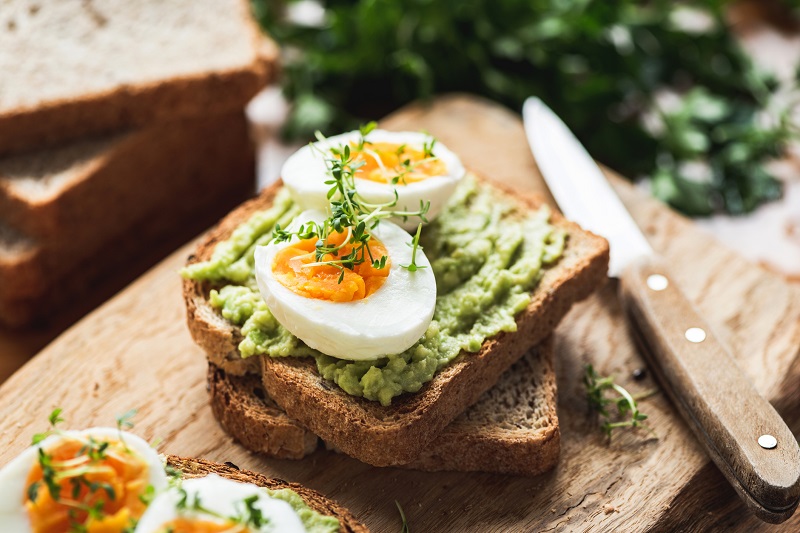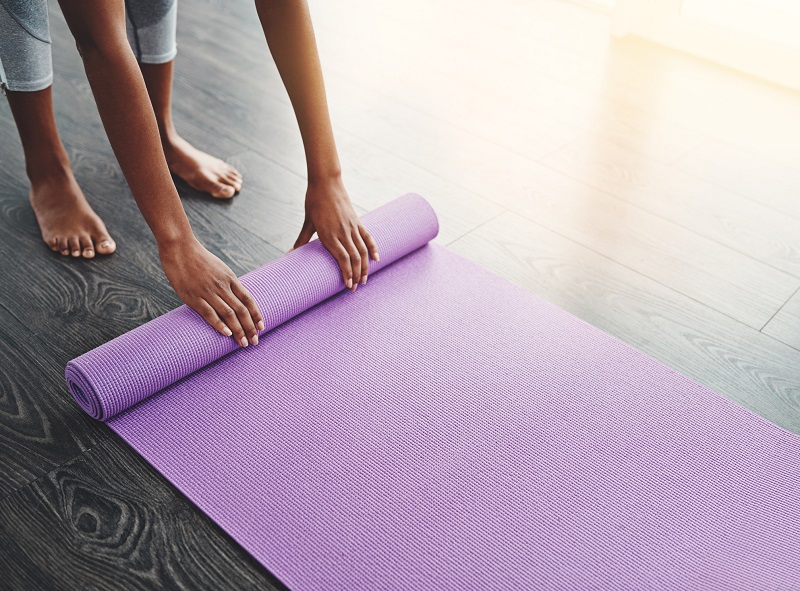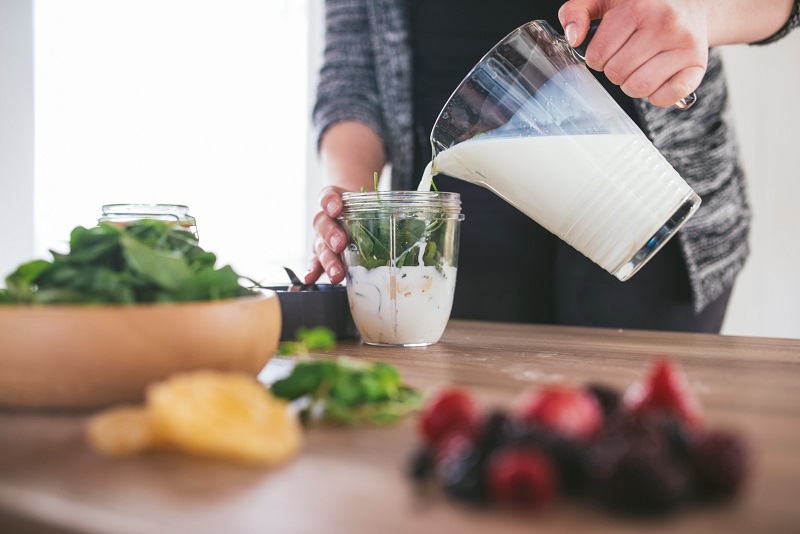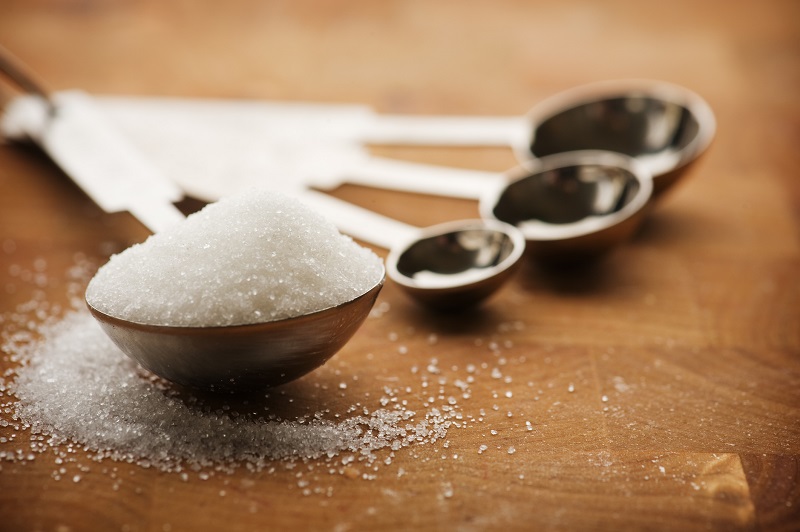
Are you feeling drained from jam-packed schedules that stretch from dawn till dusk? With so much on your plate, it’s easy to get zapped of all your energy, leaving you sluggish and depleted after a long day. But don’t chug coffee or reach for sugary energy drinks just yet! There are plenty of ways to boost your energy naturally without resorting to endless caffeine consumption. We’ve got you covered with eight scientifically proven tips to help you power through your day and stay on track towards your weight loss goals. Say goodbye to exhaustion and hello to vitality!
1. Eat a Balanced Breakfast
Breakfast gets your day going with the essential fuel your body needs. The best kind of morning meal includes foods that are high in protein like PowerFuels and lower on the Glycemic Index, like SmartCarbs.
According to a study, published in the journal Gastroenterology and Hepatology From Bed to Bench, “Lower [Glycemic Load] foods and higher protein intake at breakfast were found to be associated with higher energy levels. It is therefore recommended that breakfast foods should be low in [Glycemic Load] and high in protein. These changes may lead to better health status and prevention of disease, especially metabolic and liver disorders, in the long term.”
2. Be More Active
One of the quickest and most effective ways to boost energy naturally is to do some physical activity. That’s right, being active helps you to feel energetic, not tired. 12 population-based studies were examined in a review of research, published in Sports Medicine. According to the researchers, “all of the studies suggested that there was an association between physical activity and a reduced risk of experiencing feelings of low energy and fatigue when active adults were compared with sedentary peers.”
In another study, a brisk 10-minute walk increased the energy of test subjects and the effects lasted up to two hours. Even better, when the participants took 10-minute walks each day for three weeks, their overall energy levels were higher than before. Bonus: they also reported feeling in a better mood most of the time.
3. Take a Nap
When you’re sleepy or just lack energy, a brief “power” nap can help you feel more alert and energetic, according to a report from the University of Michigan Department of Psychiatry. A 20- to 30-minute nap can “help you maintain alertness” and can be used in addition or instead of drinking caffeine.
Don’t sleep more than that, the experts caution, “Staying in the lighter sleep stages during your nap is key to making sure you feel better, since waking up from a deep sleep suddenly during the day (or anytime) can feel jarring and make you feel less-than-rested.”
4. Eat Often
Frequent smaller meals and snacks every few hours provides your body with a steady supply of nutrients throughout the day, say the scientists at Harvard Health. This may help decrease feelings of fatigue because the brain doesn’t have many of its own energy reserves.
Skipping meals and not getting enough calories can cause fatigue and lead to crashes in your energy level. With a Nutrisystem weight loss plan, snacks play an important role in keeping your energy up while making sure your appetite is satisfied.
5. Smart Snacking
The ideal snacks to boost energy naturally include fiber-rich SmartCarbs along with protein-packed PowerFuels. SmartCarbs are carbohydrates with lots of fiber and valuable vitamins and minerals. They are low to medium on the Glycemic Index, so they don’t cause your blood sugar levels and energy to rise and then fall quickly. Fresh fruit, hummus and whole grain crackers are SmartCarbs that keep you energized and full.
6. Stay Hydrated
When your body doesn’t get enough water, you are likely to feel mentally and physically fatigued, says a report in the journal Nutrition Review. By the way, you may also feel hungry when you’re dehydrated, so if it’s not time for your next meal or snack, try drinking water. Nutrisystem’s dietitians recommend that you drink at least 64 ounces of water each day.
7. Limit Sugar
You may feel a “rush” of energy when you eat sweets and other foods that are high in added sugar and low in fiber. But that boost of energy quickly fades as your body burns up those empty calories and you are likely to feel even more lethargic than before.
According to a report, published in Open Heart, “Not only do added sugars displace nutritionally superior foods in the diet, but they may also deplete nutrients from other foods that have been consumed, as well as from body stores, in order to enable their proper oxidation and liberate their calories as energy. Additionally, the consumption of added sugars damages the mitochondria and hence impairs energy generation.”
You probably know that spooning a lot of white sugar into your coffee or breakfast cereal is an unhealthy choice and that eating candy loads you up with extra calories. But you also want to pay attention to the added sugar content of foods that don’t even taste too sweet, such as tomato sauce, non-dairy milk and flavored yogurts. Check nutrition labels for details on how much sugar is in a product before you buy it and choose low-sugar options whenever possible. Also check out these 25 Nutrisystem meals and snacks with no added sugar! >
8. Maintain Magnesium
A mineral that plays a key role in turning the food you eat into energy is magnesium. When you don’t get enough magnesium in your diet, you may feel fatigued and your body may need to work harder to do physical tasks. Nuts, seeds, whole grains and greens are all good sources of magnesium. Be sure to regularly eat foods rich in magnesium and with these other tips, you may feel energized and ready to face whatever your days demand of you.













